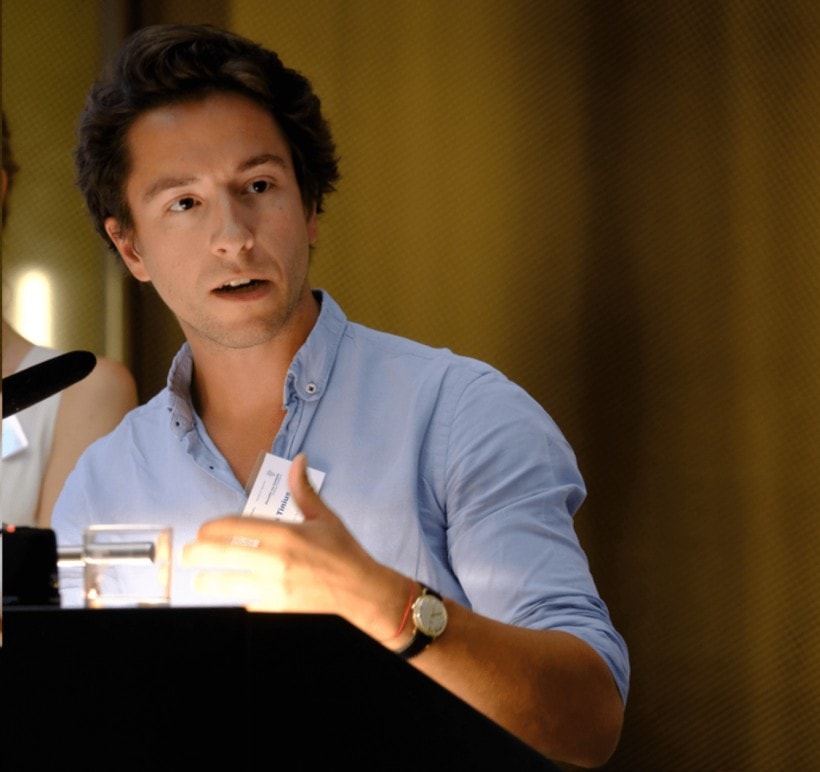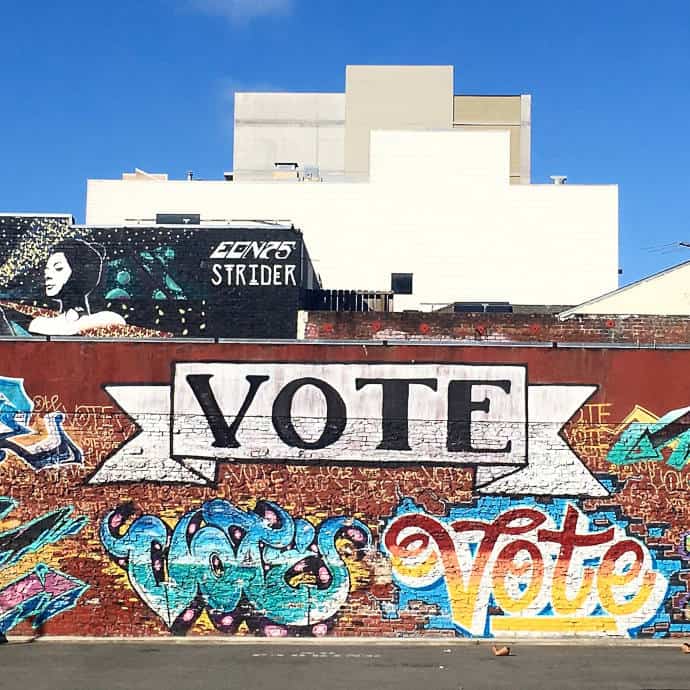 Allegra: You decided to run for the elections of the new EASA committee. Can you let EASA members know a little bit about your academic path and interests?
Allegra: You decided to run for the elections of the new EASA committee. Can you let EASA members know a little bit about your academic path and interests?
Jonas: I first studied Social and Cultural Anthropology and British/American Studies at the University of Münster in Germany, before completing a BA in the Department of Social Anthropology at the University of Cambridge (UK). I continued to do my PhD in the same department with an ethnographic study of German theatre, migration, and political self-cultivation. My research with engaged theatre makers and refugee actors has led me to engage with collaborative methods, and I have since been committed to developing epistemic and other partnerships with artists and artistic institutions. In 2016, I joined the Centre for Anthropological Research on Museums and Heritage (CARMAH) at the Department of European Ethnology of the Humboldt-Universität zu Berlin in Germany as a Postdoctoral Research Fellow. This came at an exciting as well as concerning point: a few weeks after the initial Brexit vote while starting a new research centre with an international team of researchers, and in a department of so-called ‘European’ Ethnology. We have thus been debating the scope and nature of the discipline and its transformations in the German context there, doing so against the background of our research on the contentious rebuilding of the Prussian City Palace and the transformations of anthropological museums and their colonial legacies in Europe.
My interlocutors’ life-long commitment to education, activism, art, and theatre inspired me to further pursue research on the political and public context of art in Europe and beyond. I have since been researching the role of public cultural institutions and contemporary art (especially visual art, theatre, and performance) in society today, seeking ways to feed back the conceptual and epistemic productivity of artistic practices into anthropology. In recent years, I have been doing so in relation to curatorial practices and curators’ role as mediating translators across museums, anthropology, and the legacies of the European colonial project. Among my other key research interests are migration and colonialism; curating, exhibition-making, and museums; ethics and morality; as well as methods in anthropology with a focus on France and Germany.
Allegra: What are your main motivations in joining the EASA Committee? Do you have some ‘insider’ knowledge of the association?
Jonas: The principal reason for seeking to join the EASA executive committee is my disquiet about the future of public academic knowledge production across European countries, especially at a time when intellectual solidarity is threatened by disturbing political developments and an undermining of university infrastructures and sovereignty. I further want to lobby for the role of anthropology across the different strata of society, doing so in collaboration with partner organisations and universities on a European level. In particular, I seek to represent the concerns of early-career researchers who are navigating the requirements of transnational flexibility and facing an ever more competitive professional system.
For several years, I have convened, presented, and participated in panels at previous EASA conferences, but didn’t gain ‘insider’ knowledge until joining the anthropology of art interest group of the Visual Anthropology Network (VANEASA) and subsequently co-founded and convened the Anthropology and the Arts Network (ANTART) with Roger Sansi. While we will be passing on the convening responsibilities for the network after an interim event this year and the next conference in 2020, I wish to further underline and strengthen the role of artistic practice and theorising in anthropology.
Allegra: What are your views regarding Open Access publishing and ‘public anthropology’ more broadly?
Jonas: If we want anthropological scholarship to be widely accessible, it is essential to work towards greater and ‘open’ access publishing. Publishers should strive to expand OA options and professional associations should engage in a broad debate on this issue, working with universities, publishers, and foundations to explore more formats and inform about funding sources, especially for early-career academics. As recent discussions for example around the journal HAU have revealed, the terrain is contested, the infrastructures complex, and the topic highly politicised. In whatever way we move forward in this debate, it is evident that the OA question has prompted a welcome rethinking of the entire infrastructure of public anthropological scholarship. A significant aspect of this reconsideration, especially for anthropologists working on and with other fields of public knowledge production, concerns the way in which we communicate our findings and reflections to our interlocutors, other professional fields, and a critical public. This debate is crucial for the recognition of anthropology as a discipline, and the impact of its research.
Anthropological scholarship evidently addresses issues of broad public concern; its observations and analyses can be consequential and offer important complements and counterpoints to the usual punditry. For these reasons, I strongly support and want to see anthropological practice engage further in public debates, informing and possibly influencing public opinion, politics, and societal movements and change. At the same time, the histories and infrastructures of our past and future production of knowledge should remain open to critique and broad debate itself.
Allegra: A new generation of anthropologists is experiencing a series of concerns related to their profession and their future. How do you see the role of EASA in this scenario?
Jonas: This issue is not as new as it may seem. The number of PhDs in anthropology has for some time been vastly outnumbering the available positions, and academic employment has never been renowned for its stability and security. Surely the answer is not to discourage people from pursuing this path, but to lobby for more funding, security, and job futures. This goes hand in hand with more transparent infrastructures and support, especially for early-career researchers and underrepresented, vulnerable, and otherwise disadvantaged sections of the professional discipline.
We need a broad, open, and public debate about the precariousness of professional futures in anthropology in which EASA can underline its role as a central platform and network of solidarity – as it did with an important debate on this issue at the last conference in Stockholm. This debate needs to raise awareness, give voice, and work towards lobbying for greater job security and better working conditions. Crucially, however, we need professional and widely-recognised international platforms like EASA to take a firm stance against abuse of power and discrimination in the discipline and its professional organs.





